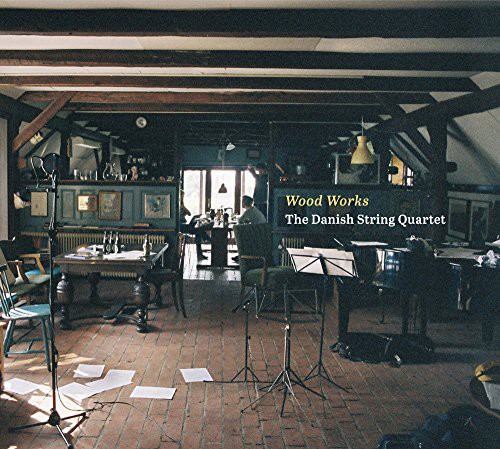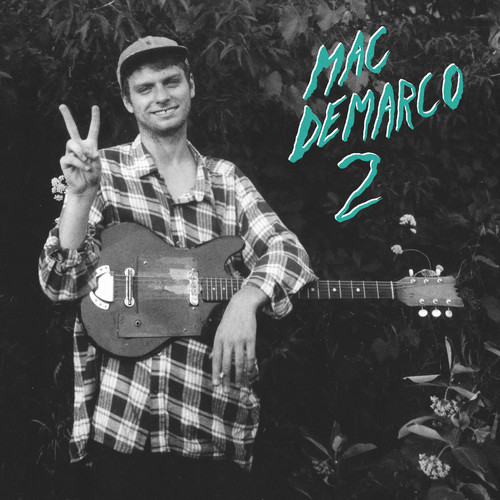Recently Back & Available Online
Khruangbin has always been multilingual, weaving far-flung musical languages like East Asian surf-rock, Persian funk, and Jamaican dub into mellifluous harmony. But on its third album, it’s finally speaking out loud. Mordechai features vocals prominently on nearly every song, a first for the mostly instrumental band. It’s a shift that rewards the risk, reorienting Khruangbin’s transportive sound toward a new sense of emotional directness, without losing the spirit of nomadic wandering that’s always defined it. And it all started with them coming home.
Underneath his mysterious metal mask, MF DOOM hides the cachet underground legends are made of. After his first group KMD’s sophomore album Black Bastards was shelved by Elektra in 1994, and his blood brother Subroc — one half of the sibling rap duo — passed away, surviving frontman Zev Love X slowly mutated into the supervillain MC known as MF DOOM, and the rap world is better for it.
The 1999 release of Operation: Doomsday marked MF DOOM’s official debut, reintroducing a mysterious figure who would soon become one of underground rap’s greatest voices. Within its 19 tracks, Operation: Doomsday reveals the confluence of DOOM’s tragic past, personal interests and daring creativity. His clever rhymes and remarkable schemes stood out against the landscape, and every sound he touched — from cartoon theme songs, to ‘80s soul, to rap classics and more — got reinterpreted into something brand new and surreal.
Decades later, MF DOOM is still celebrated for all facets of his work and influence. In the face of tragedy, DOOM re-infiltrated the rap game on his own terms, and crafted an instant cult classic. Operation: Doomsday stands as a testament to the power of betting on yourself against all odds.
The breakout success of 2016’s Puberty 2 saw Mitski hailed as the new vanguard of indie rock, the one to save the genre from the white dudes who’ve historically dominated it. But the often overlooked aspect of being a rising star is the sheer amount of work that goes into it. “I had been on the road for a long time, which is so isolating, and had to run my own business at the same time,” Mitski explains, “a lot of this record was me not having any feelings, being completely spent, but then trying to rally myself and wake up and get back to Mitski. I was feeling really nihilistic and trying to make pop songs.” We want our artists to be strong but we also expect them to be vulnerable. Rather than avoiding this dilemma, she addresses directly the power that comes from appearing impenetrable and loneliness that follows. “With a lot of the romantic infatuations I’ve had,” she says, “when I look back, I wonder, Did I want them or did I want to be them? Did I love them or did I want to absorb whatever power they had? I decided I could just be my own cowboy gure that I so desire.” In Be The Cowboy, Mitski delves into the loneliness of being a symbol and the loneliness of being someone, and how it can feel so much like being no one.
Taylor Swift -"Speak Now (Taylor's Version) - 3 LP - Taylor Swift's 2010 album "Speak Now" is being re-released on July 7 as "Speak Now (Taylor's Version)." The album will be released as a 3-LP vinyl - [Orchid Marbled 3 LP]
Got A Story to Tell refines the sweet soul sounds Thee Sacred Souls have become famous for, delivering a genre pushing collection of songs that exhibit a magnetic coolness and swagger. The relaxed quality of the musicianship coupled with Josh Lane's heart-wrenching voice, gives the album a maturity that carries the listener through many facets of the soul music spectrum. From the heavy groove of the opening track "Lucid Girl", the '70s swing of "Live for You".
While his formative years were spent listening to everything from Yes to Photek, Scott Hansen didn’t get his hands on an actual guitar or drum machine until he left his native Sacramento for San Francisco in 1995. “Encountering this whole new world at 20 years old was a profound experience,” says Hansen, better known by his musical pseudonym Tycho and as the graphic artist ISO50. “At the time, I was just learning the processes of design and music; both felt very similar, and have flowed back and forth for me ever since.”
As seamless as his two creative outlets have been, nearly a decade passed before the release of Hansen’s first proper Tycho LP, Sunrise Projector (later expanded and reissued under the title Past Is Prologue). And while three striking singles have emerged since then, the sum of all those sepia-toned parts is nowhere near the double-exposed soundscapes of Dive. The product of a prolonged break from IS050’s design work and blog, it pays tribute to Tycho’s prismatic past (the dense, guitar-guided turning points of “Daydream” and “Adrift”) but spends most of its time pointing to the project’s not-so-distant future.
Faye Webster’s songs are direct lines to the human subconscious, and Underdressed at the Symphony documents what happens once you begin to build a new self from the ashes of your old routines. This rebirth isn’t flashy or definitive, but is instead a series of seemingly mundane moments that, scattered across weeks and months, sneak their way toward something like healing. Yes, there’s a breakup in play, but Webster is not documenting the heartbreak of a breakup so much as she’s navigating the contours of heartbreak itself.
Recorded at Sonic Ranch Studios in Texas with her longtime band, Webster is accompanied on Underdressed at the Symphony by Matt Stoessel’s arcs of shimmering pedal steel, the plaintive, unhurried drums of Charles Garner, and, occasionally, additional guitarwork from Wilco’s Nels Cline, among many other crucial players. The title of the album refers to Webster’s post-breakup compulsion to visit the symphony on a whim, usually buying a ticket at the last possible second. “Going to the symphony was almost like therapy for me. I was quite literally underdressed at the symphony because I would just decide at that moment that that's what I wanted to do,” she says. “That's what I felt like I needed to hear. I got to leave what I felt like was kind of a shitty time in my life and be in this different world for a minute.”
That strain of lightheartedness with a melancholic backbone permeates the album, and is the major driving force behind “Lego Ring,” which features Atlanta multi-hyphenate Lil Yachty, the only guest voice on the entire album. Yachty’s ghostly warble floats just under Webster’s voice, jabbing through empty space, trembling over a low rumble of bass. The song is also a sort of release—a buoyant moment that cuts through the sadness. “I think I hit a point in songwriting during this record where I was just like, man, I said a lot.” Webster says. “I'm just going to sit down and sing about this ring that I really want. ”Like the rest of the album, Webster isn’t providing answers, nor is she on some epic journey of healing and self-care. Instead, she’s choosing to just live, to document heartbreak and ridiculous moments right next to each other, until they start to blur together, becoming real enough for us all to feel.
Phoebe Bridgers wrote her first song at age 11, spent her adolescence at open mic nights, and busked through her teenage years at farmers markets in her native Los Angeles. By age 20, she'd caught the ear of Ryan Adams, who listened to her perform her song "Killer" in his L.A. studio, inviting her to come back and record it there the next day. The session blossomed into the three-song ‘Killer’ EP, released to much acclaim on Adams’s Pax-Am label in 2015. In the two short years since, Bridgers has toured or played with Conor Oberst, Julien Baker, City and Colour, Violent Femmes, Mitski, Television and Blake Babies among others. On September 22nd, Phoebe Bridgers will release her debut full-length, Stranger In The Alps. From the weeping strings and Twin Peaks twangs of opening track Smoke Signals, to the simple heartbreak of Funeral and melancholic crescendo of Scott Street, Stranger in the Alps is a swooningly beautiful record with a gothic heart.


![Khruangbin - Mordechai [LP] Khruangbin - Mordechai [LP]](https://mediacdn.aent-m.com/prod-img/500/16/3808816-2565644.jpg)
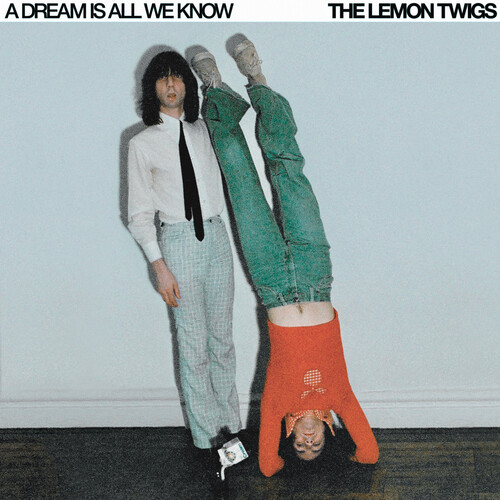
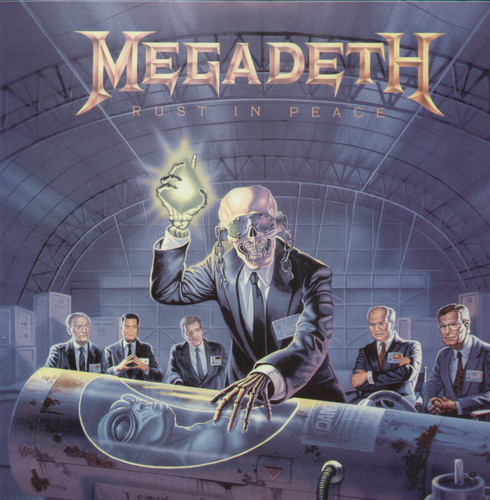
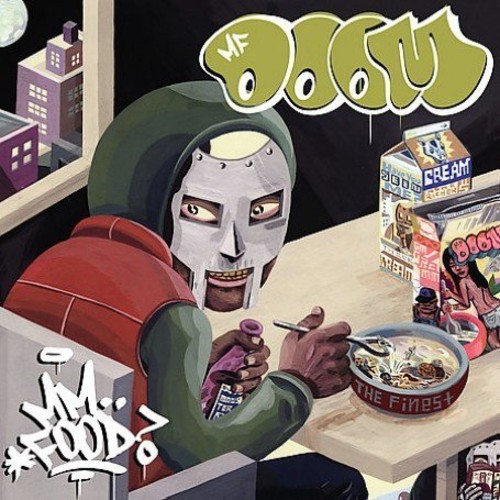
![MF DOOM - Operation: Doomsday [2LP] MF DOOM - Operation: Doomsday [2LP]](https://s3.amazonaws.com/broadtime_thumbnails/500/418467230500/418467230500:500.jpg)
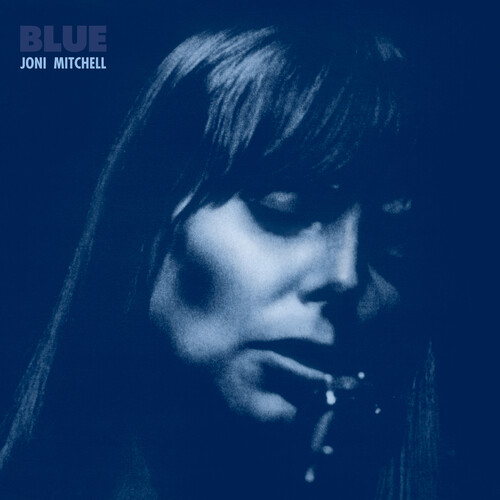
![Mitski - Be The Cowboy [LP] Mitski - Be The Cowboy [LP]](https://aentcdn.azureedge.net/graphics/items/sdimages/a/500/3/6/6/5/3805663.jpg)
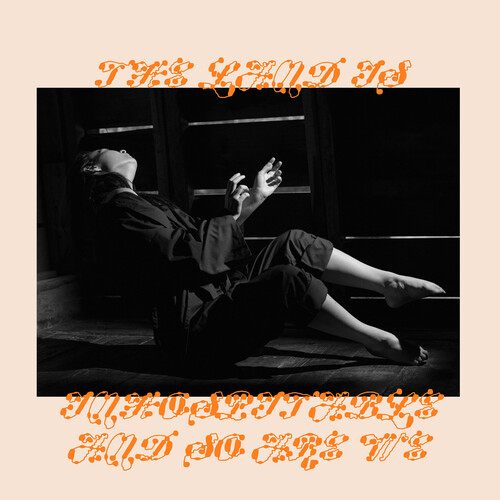
![Modern Baseball - Sports - Lime Green [Colored Vinyl] (Grn) Modern Baseball - Sports - Lime Green [Colored Vinyl] (Grn)](https://mediacdn.aent-m.com/prod-img/500/61/4168361-2952446.jpg)

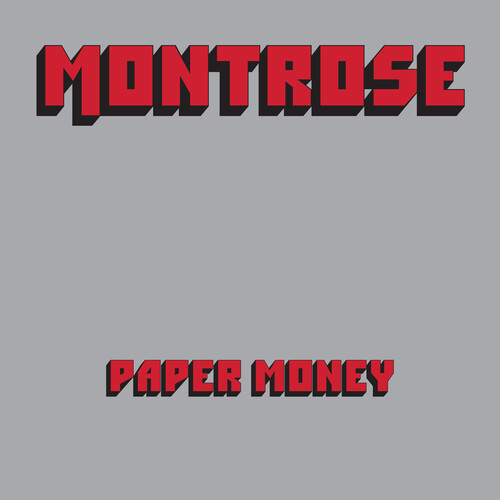
![My Chemical Romance - The Black Parade [Vinyl With D-Side Etching] My Chemical Romance - The Black Parade [Vinyl With D-Side Etching]](https://aentcdn.azureedge.net/graphics/items/sdimages/c/500/8/9/5/2/2802598.jpg)
![Of Monsters And Men - Beneath The Skin [Vinyl] Of Monsters And Men - Beneath The Skin [Vinyl]](https://aentcdn.azureedge.net/graphics/items/sdimages/a/500/0/6/1/4/2864160.jpg)

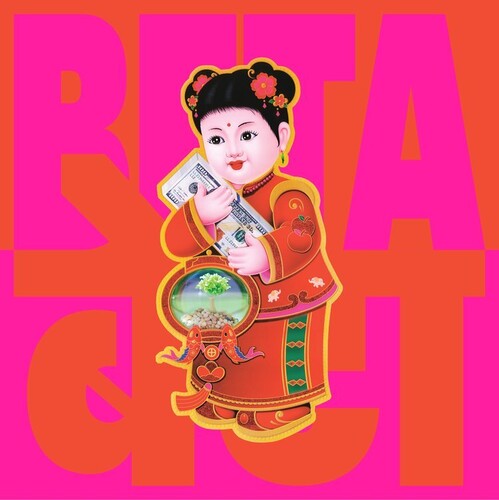
![Solange - A Seat At The Table [LP] Solange - A Seat At The Table [LP]](https://aentcdn.azureedge.net/graphics/items/sdimages/b/500/4/7/2/0/3470274.jpg)
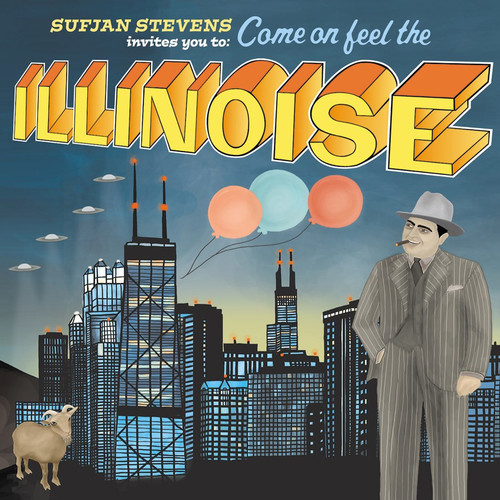
![Sting - Ten Summoner's Tales [LP] Sting - Ten Summoner's Tales [LP]](https://aentcdn.azureedge.net/graphics/items/sdimages/b/500/6/8/8/4/3424886.jpg)
![Taylor Swift - Speak Now: Taylor's Version [Orchid Marbled 3 LP] Taylor Swift - Speak Now: Taylor's Version [Orchid Marbled 3 LP]](https://mediacdn.aent-m.com/prod-img/500/56/4224656-3244588.jpg)
![Thee Sacred Souls - Got A Story To Tell [Magenta Vinyl] Thee Sacred Souls - Got A Story To Tell [Magenta Vinyl]](https://img.broadtime.com/Photo/418467282130:500)
![Turnover - Peripheral Vision [Colored Vinyl] [Clear Vinyl] (Org) (Can) Turnover - Peripheral Vision [Colored Vinyl] [Clear Vinyl] (Org) (Can)](https://mediacdn.aent-m.com/prod-img/500/52/4152452-2960386.jpg)

![Tycho - Dive [Orange & Red 2LP] Tycho - Dive [Orange & Red 2LP]](https://s3.amazonaws.com/broadtime_thumbnails/906/418467075906/418467075906:500.jpg)
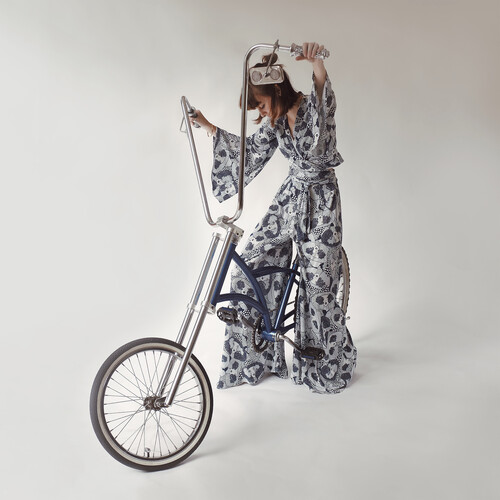

![Faye Webster - Underdressed At The Symphony [LP] Faye Webster - Underdressed At The Symphony [LP]](https://img.broadtime.com/Photo/418467265814:500)


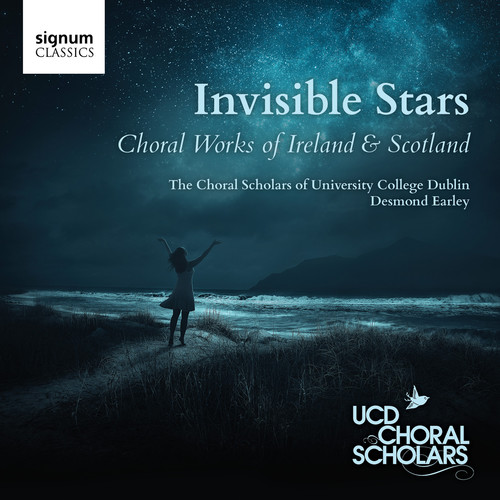
![Bad Bunny - Un Verano Sin Ti [2CD] Bad Bunny - Un Verano Sin Ti [2CD]](https://s3.amazonaws.com/broadtime_thumbnails/248/418467029248/418467029248:500.jpg)

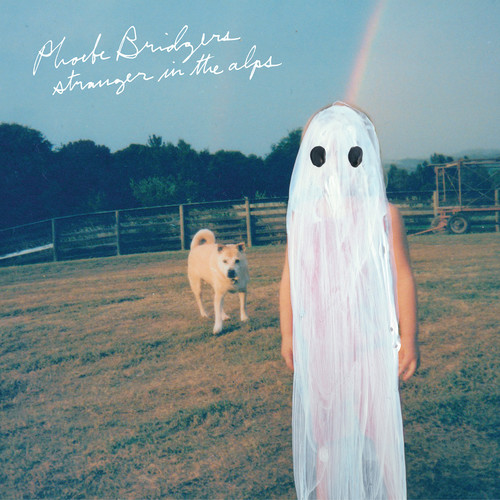

![Cursive - Devourer [CD] Cursive - Devourer [CD]](https://img.broadtime.com/Photo/418467275572:500)
